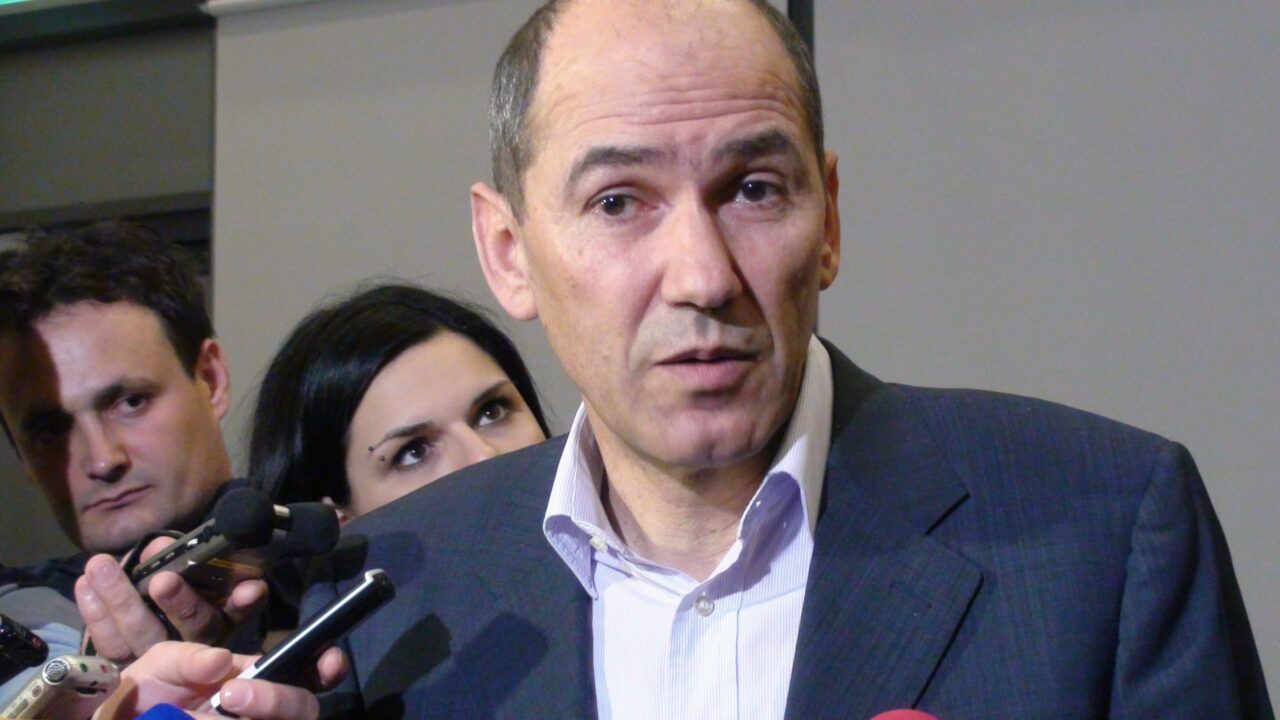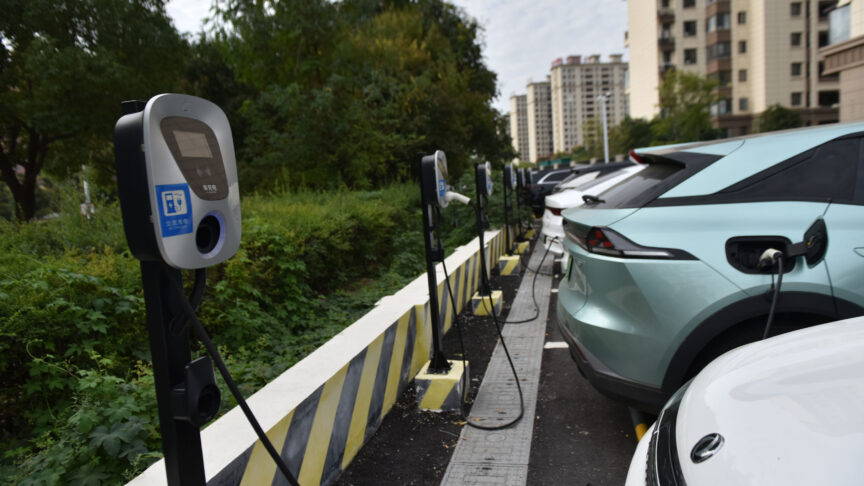The dangers of Slovenia’s presidency
European leaders need to recognise the influence that Slovenia’s Council presidency could have on the EU debate on the rule of law. They should discourage the Slovenian leadership’s undemocratic tendencies
The Slovenian presidency of the Council of the European Union, which began on 1 July, could have significant implications for the rule of law in the bloc. It comes at a crucial moment when EU member states are increasingly divided over democratic values. Their debate on the rule of law is a key part of this – and many decisions that the Council will take before the end of this year could influence how it plays out.
So, what should Europeans expect from Slovenia? The country may be relatively small, with only two million inhabitants, but there is a lot that it could do in the coming six months to undermine – rather than strengthen – the rule of law and deepen the EU’s east-west divide.
The fundamental issue is that Slovenia’s prime minister, Janez Jansa, may still be a member of the European People’s Party but he does not hide his sympathy for his Hungarian counterpart, Viktor Orban. Like Orban and the Polish prime minister Mateusz Morawiecki, Jansa has been accused of infringing on media freedom and the independence of the judiciary. He has also become known for his Trumpian use of Twitter to express his controversial views.
One could argue that either the spotlight on Slovenia will discourage it from further backsliding or that the role of an EU presidency is not important enough to allow Jansa to cause serious damage. However, it is precisely this kind of underestimation of the Slovenian presidency’s influence that could prove most damaging.
At a time when so much attention is focused on larger member states, with a German national election in autumn and French presidential and legislative elections early next year, European leaders should not be blind to the danger that the EU could tip further in the direction of illiberalism. A level of ambiguity around the intentions of the Slovenian presidency means that it is difficult to be sure what stance it will take on major issues. For instance, the presidency’s rhetorical commitment to the rule of law is at odds with Jansa’s refusal to appoint the Slovenian delegates for the European Public Prosecutor’s Office.
If it suits Jansa’s political agenda, he could take this opportunity to steer the discussion away from the rule of law, protect Hungary and Poland, or simply ignore opportunities to make advances on democratic standards.
One of the main areas for concern is the EU’s pandemic recovery fund, as the bloc prepares to distribute billions of euros in financial support to member states. The risks of corruption remain, and there is still a stand-off over conditioning funds on the rule of law. The urgent need to revive the economy risks creating a situation in which the EU disburses funds without sufficiently monitoring how they are spent – which, as Piotr Buras argues, can strengthen authoritarian structures. For instance, the Slovenian government could continue to misuse both national and EU funds to strengthen its own propaganda platforms as shown by the latest paper from Heinrich Boll Stiftung. The European Commission could further delay the approval of recovery funds for Hungary and Poland, but such half measures cannot work forever while the pressure on the EU economy is mounting.
It is in this environment that Slovenia will be driving the work of the Council on EU legislation, chairing meetings, and convening on the approval of remaining plans. If it suits Jansa’s political agenda, he could take this opportunity to steer the discussion away from the rule of law, protect Hungary and Poland, or simply ignore opportunities to make advances on democratic standards.
The same can happen regarding the Article 7 proceedings against Poland and Hungary. In this case, a lack of progress could be detrimental to the inevitable vote on the “clear risk of a serious breach” of the rule of law. The Slovenian presidency could lobby for the vote to happen while there is no clear majority to pass it against Poland and Hungary, thereby directly supporting undemocratic behaviour in those states.
On top of these issues, Slovenia has its own initiatives that it could use to push its agenda on the rule of law. For example, the country could do so through the Conference on the Future of Europe or the establishment of a ‘European Foundation for Constitutional Democracy’, which it mentions in the official programme for its presidency. In theory, this body would bring together all member states to assess the rule of law in the EU and “fill the gap in the monitoring of compliance with the rule of law by EU institutions”. In practice, this could be a platform to promote a different approach rule of law – one in opposition to that of Brussels.
At the same time, it is difficult to determine the values the Slovenian presidency aims to represent and the stance Slovenia might take on some of these issues. Jansa’s conception of the rule of law is usually at odds with the Western vision of liberal democracy – as seen in his attacks on Slovenian media outlets – but, in theory, the Slovenian presidency seems to adopt this vision.
One of the main priorities of the Slovenian programme is to foster an inclusive debate and show “how the rule of law can be further strengthened in full respect of national constitutional systems and traditions”. Such statements could indicate that Jansa, through the Slovenian presidency, might want to promote his own understanding of democratic values, which is more in line with the sovereigntist view of Europe (in the sense of the primacy of member states).
European leaders need to recognise the influence that the Slovenian presidency – and, by proxy, Jansa – could have on the debate on the rule of law in the EU.
They should not only monitor the situation in Slovenia but also politicise it by using the country’s high-profile current role in the bloc to discourage its undemocratic tendencies. An important first step in this is for the European People’s Party to subject Jansa’s Slovenia Democratic Party to a much higher degree of scrutiny. A recent ECFR public opinion poll showed that a plurality of Europeans want the EU to be a beacon of democracy in the world. One will likely be able to see the kind of democracy this is in the near future. The presidency of the Council gives Jansa not only a platform to promote his authoritarian ideas but also several ways to embed them in the EU institutions. What could seem to be an insignificant presidency in more peaceful days could, in fact, leave a lasting mark on the bloc.
The European Council on Foreign Relations does not take collective positions. ECFR publications only represent the views of their individual authors.



